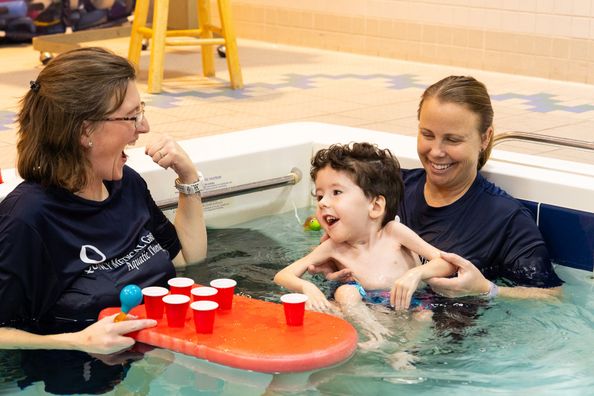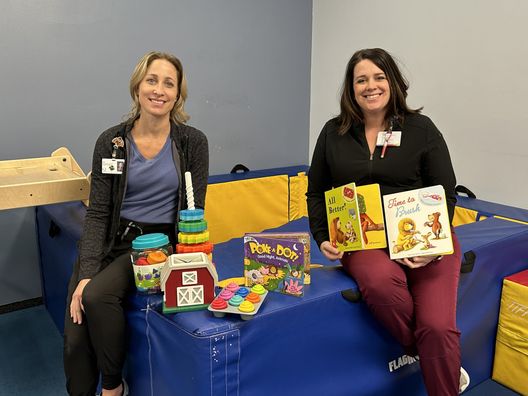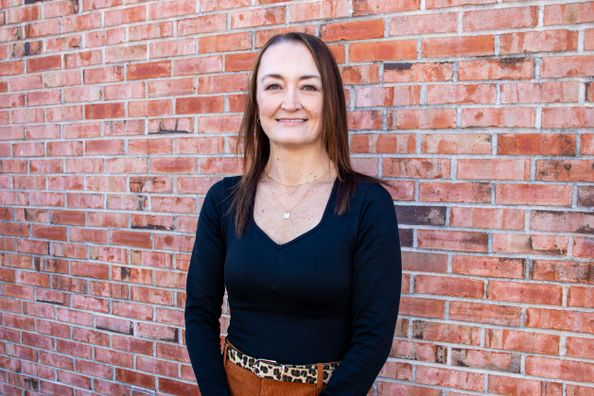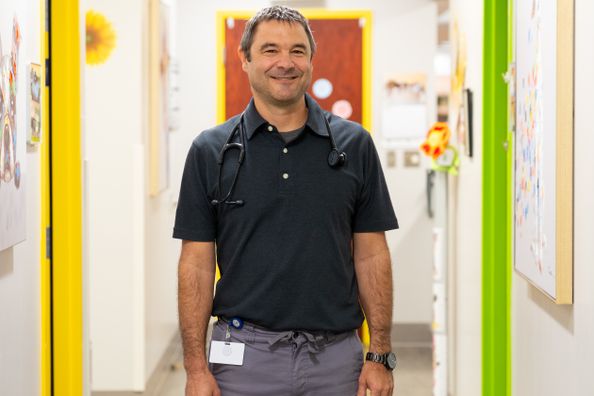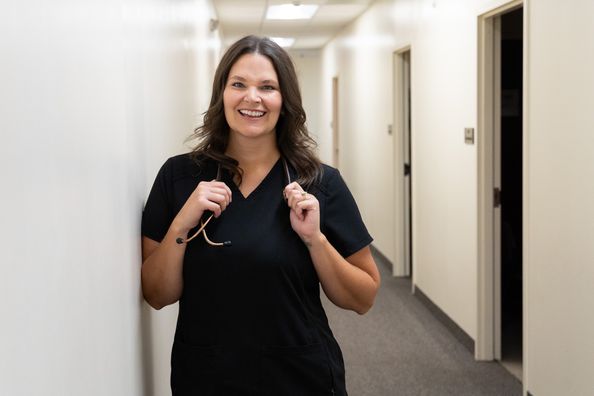When Reece A. entered the world on April 25, 2021, his parents, Kathryn and Adam, found themselves facing more questions than answers. Diagnosed with a rare genetic condition, there was no clear roadmap for his life — only a path they would have to carve out together, one day at a time.
“He was born four weeks early after a normal pregnancy,” Kathryn shared. “I went into labor with him, and after a long labor, we ended up in an emergency C‑section. He was born in respiratory distress. That was our first clue that something was wrong.”
Reece was transferred to Springfield for advanced care, where genetic testing revealed a variant in the RYR1 gene— his exact mutation of the gene came with no medical history to guide them.
By three months old, Reece came home on a ventilator, dependent on a tracheostomy tube for breathing and being fed through a G‑tube. The family soon connected with specialists in St. Louis, where Reece was officially diagnosed with King-Denborough syndrome, a condition so rare that Kathryn knows just a handful of people worldwide who share it.
“I have three people that I’m in communication with around the world who either have it or have a child with it,” Kathryn shared. “Reece is the youngest I’ve found, and he is the only one who isn’t walking yet, so we have some hope there.”
Every milestone, no matter how small, has been a cause for celebration. The removal of Reece’s tracheostomy tube in July 2022 marked a turning point. In 2023, he graduated from using a G‑tube to eating regular food, his favorite being pepperoni pizza. But as with any journey, new challenges emerged. The family’s current focus is on Reece’s scoliosis. “That’s just the journey we expect with him. We face what’s in front of us right now,” Kathryn explained.
At three months old, Reece started working with Quincy Medical Group (QMG) Pediatric Therapist Julia Whittaker, PT, to build strength and mobility, while QMG Pediatrician Lindsay Brink, DO, provided ongoing care. “Cognitively, he’s completely on track. His limitations right now are physical. It takes strength for all of us to do everything we do in a day. But I never realized how much we depend on our muscles until I had Reece,” Kathryn said.
In July 2024, Reece began aquatic therapy at QMG, working with Pediatric Physical Therapist Samantha Wilson, PT, DPT and Certified Occupational Therapy Assistant Ashlee Simpson, COTA/L, CPRCS. “We had been curious for a while about how Reece would do in the water. He loves to swim, and that was a unique therapy QMG offered,” Kathryn said.
For the first time in his life, Reece experienced the joy of movement that many take for granted. With Sam and Ashlee’s guidance, he learned to walk in the water, playing a game he loves – squishing bugs. “We are dinosaurs. We make the Earth flat,” Reece said.
His scoliosis is progressive, and their doctor in St. Louis prepared Adam and Kathryn for the long haul and the likelihood of the condition worsening. “He said, ‘We don’t expect it to get better; it will get worse. We’re just trying to see how much we can slow down the progression.’ Every time we go in for scans and x‑rays, we’re hoping to see how much we’ve slowed it down,” Kathryn said.
But at his most recent visit, something unexpected happened: the curvature of Reece’s spine had improved by seven degrees — a result they hadn’t thought possible. “I 100% credit those results to the grace of God, QMG, and the interventions of these types of therapies, because we hoped for zero change. When I hear the word improvement, that’s pretty miraculous to us.”
With all the unknowns of Reece’s condition, the Kathryn and Adam were unsure if the resources and support they needed were available in Quincy.
“I even asked my husband at one point, ‘Do we need to move somewhere closer to a children’s hospital?’ But it turned out we were the lucky ones being here because everything we’ve needed has been found just a few blocks from our home,” Kathryn said.
Kathryn reflects on how she embraces Reece’s milestones. “I think it’s easy to live with fear and anxiety about what’s to come in Reece’s life. With the progress we’re seeing during these therapy sessions, I’ve realized I don’t need to wait for the relief of success. I can enjoy the journey as much as the outcome.”
Adam added, “We’ve learned to parent with the mindset of never wanting to limit Reece’s progress. So if there is something that can challenge him or allow him to progress, we want him involved with it. We’re thankful for the resource that is Quincy Medical Group, which allows him to progress into a more vibrant human being.”
The story of Reece’s life is still unfolding, but every day brings new hope and new strength. In QMG, they have found a partner. “I think a lot of times, especially with parents of medically complex children, advocacy can feel like it’s synonymous with fighting. But what we’ve found with Quincy Medical Group is that there are providers here who advocate alongside us, and we can trust them. I don’t have to go to them to fight for my son; I can go to them knowing they’re helping fight for him, too.”
To learn more about the QMG Pediatrics team, click here or call (217) 222‑6550, ext. 3333. For information about QMG Pediatric Therapy services, click here.
Health Topics:

